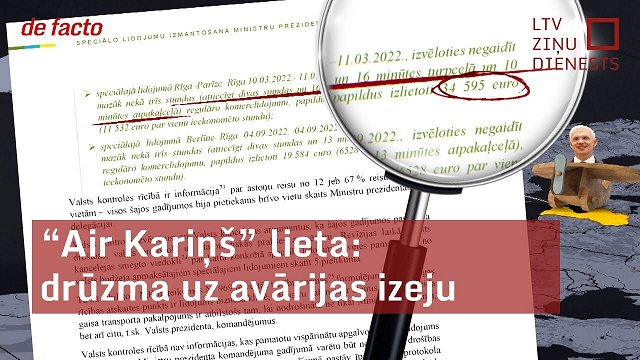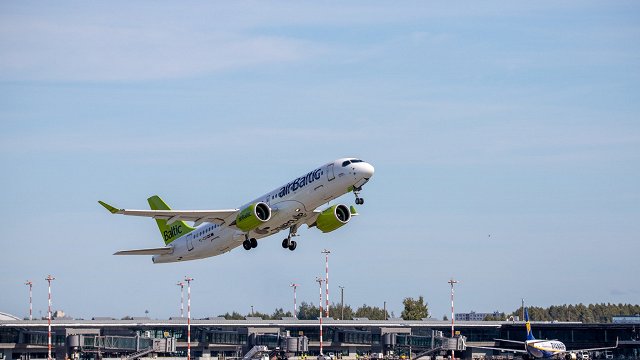Just over a week ago, the State Audit Office came up with conclusions on the special flights used for Kariņš' missions, concluding that more than EUR 220,000 had been unlawfully used from the State budget, while at least another 320,000 of the resources of the EC had been used uneconomically.
As the State Audit Office pointed out, it delved into this problem after a large public interest. By then, however, the subject had gone somewhat unnoticed, although the State Audit Office carries out annual financial audits of public authorities.
Auditor General Edgars Korčagins explained that audits do not mean that illegalities will be caught:
"The audit that goes on every year - it can't be expected that we're going to catch the illegalities. It cannot be expected that we check every last euro. It's about whether the review can be believed.
"There are cases where we see a red flag. And then those algorithms are very clear. If we see a specific illegality, then either we are giving information to law enforcement agencies, or if the issue is more thoroughly investigated, we are assessing both our resources and the overall risks, and perhaps conducting more in-depth checks in a separate audit."
Whether that routine should be changed is likely debatable. On the one hand, according to the State Audit Office, this practice of auditing annual accounts is internationally recognized – it also takes place in other countries. In addition, an in-depth investigation of every detail would require enormous resources.
Andris Grafs, vice President and head of the Baltic Institute of Corporate Governance in Latvia, said the control should also be proportionate:
"If there is that expectation that the State Audit Office should watch everything, from missions to all other issues, that means something fundamentally isn't right with the public administration in the first place. That we don't trust and that there are no professionals who can just do their job right."
State Audit Office reports are also regularly heard by the responsible Public Expenditure and Audit Committee of the Saeima, whose Chairperson Viktorija Baire (New Unity) said that audits are often "dry":
"Perhaps the State Audit Office needs to look at the methodology it is applying because when they come and report, they also acknowledge that it is a pretty dry check with no further insight. At the same time, one has to look at the fact that when you check dryly too, you can pay attention and look, maybe there are some shifts, inaccuracies."
Meanwhile, assistant to the head of the Commission Andris Kulbergs (United List) said that many things in the country have already been reregulated:
"By re-regulating this whole thing, we're just going to get to a situation where nobody wants to do anything... And we already have a lot of reregulated things where no one wants to take responsibility."
Moreover, too much scrutiny could also contribute to further bureaucratization in the corridors of public authorities and certainly not encourage innovation and initiative from public sector officials, he said.






























